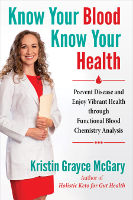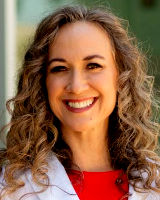Taking control of your health starts with being aware of the factors that influence your personal well-being. But a healthy lifestyle is more than just awareness; it’s action.
We can no longer call it a “healthcare system,” when it is much closer to a “sick-care system.” The system serves to treat symptoms and diseases while lacking the tools and skills to direct its focus toward prevention.
Luckily, you can help move the focus toward prevention.
Raise Your Awareness of Pharmaceuticals
Pharmaceuticals are a side effect of our nation’s “sick-care system.” They are often used to mask symptoms rather than address the root of imbalances. Unfortunately, as things stand now, there is big money in big pharma and not so much in prevention.
Get The Latest By Email
Medical schools’ curriculums are informed by the pharmaceutical and health insurance industries, rather than by what is best for the patient. Why is this? The money trail. Preventing disease doesn’t make millions of dollars for large insurance and pharmaceutical companies. It’s much more lucrative to treat diseases than prevent them.
Can you imagine what would happen to the US economy if we found a “cure” for diseases such as cancer, cardiovascular disease, and diabetes? For example, in the past 24 years, the Susan G. Komen Foundation has spent 2.6 billion dollars on cancer programs. Read that again: “cancer programs” not prevention. A lot of that money has gone to promote mammograms and screenings. With more people getting mammograms, the chances of early detection slightly increase, so survival rates have also slightly increased.
More effective and safer technology exists to reveal cancer years before mammography will detect it: it’s called thermography. Susan G. Komen is proud to promote statistics that show deaths from breast cancer have declined by almost 40 percent since 1989. However, the same numbers of people are getting breast cancer (if not more), and approximately 95 percent of breast cancer is preventable!
That is a lot of money that could have gone to making substantial changes in the way we view prevention and empowering women to take appropriate action to prevent the tragedy in the first place. I’d like to see the rate of breast cancer dropping, not just the survival rate increasing.
What Influences The Onset of Cancer?
Many factors influence the onset of cancer. Genetics only account for approximately 2 percent, and according to the established scientific field of epigenetics, those genes can be down-regulated (kept turned off). That means there is a lot we can do to influence our health, even when it comes to cancer. Nutrition; toxic chemicals in your environment, foods, body care and beauty products; your thoughts and beliefs; stress; and relationships all impact if and how your genes express themselves.
The current reality is cancer is a huge sick-care industry. Many of the chemotherapy drugs in current use have not been officially approved by the FDA, yet they are allowed to be used. This is because approval would require establishing “safety,” which is practically impossible with a drug that is intended to kill everything it touches. Many chemotherapy drugs kill other tissues while killing the cancer, which is why these drugs can’t be labeled “safe.”
I’m not intending to bash the cancer industry or the drugs it promotes. I believe everything has a time and a place. However, I want to make you aware of the bias within the industry. I do not judge anyone who chooses to follow the conventional cancer treatment protocols available today—sometimes, chemotherapy helps extend a person’s life. More often than not, those drugs take a life sooner than expected. It is known as “the red devil,” and if certain chemo drugs touch your bare skin they cause a third-degree burn; yet we use this in hopes it will kill the cancer, while also killing many cells with which it comes in contact.
Making Informed Choices
I feel it is important for you to have all the information you need to make an informed choice about your health, rather than being pressured to do a therapy that you don’t feel comfortable going through. I believe you deserve more information than just the biased opinions of pharmaceutical industry drug representatives, research funded by big pharma, and physicians that have little or no training in nutritional or lifestyle recommendations (a foundational influence on your previous and current biochemistry).
It’s not just cancer that is influenced by the big money pharmaceutical industry. More than 100 million Americans have diabetes or pre-diabetes, and about 610,000 people die of heart disease in the United States every year; that’s one in every four deaths. In addition, each year about 735,000 Americans have a heart attack.'
Prevention: Diabetes and Heart Disease
The sad truth is that 100 percent of Type 2 diabetes is preventable, and almost 100 percent of cardiovascular disease is preventable! Yet how many people do you know who are taking pills for high blood pressure and high cholesterol, or giving themselves shots to control their blood sugar levels?
Why aren’t we focusing on prevention rather than feeding more pills into the system? There are simple, inexpensive lifestyle and nutritional shifts that prevent these diseases, and yet, not many people are talking about or implementing them. In fact, some physicians put “natural” approaches down and call them “unscientific.”
The truth is that much of what we study in science needs an incredible amount of funding. Pharmaceutical companies have a lot of money for research, but there isn’t much funding available to research plant medicines. For example, certain plants demonstrate a remarkable ability to reduce blood sugar and hemoglobin A1c levels in diabetics; antioxidants in foods have been shown to decrease inflammation; a particular phytochemical (plant-based chemical) found in a berry in the Amazon has been shown to modulate the immune system; and a particular herb has been shown to improve prostate health. These are just a few of the possible alternatives. It’s accurate to say that there is great potential with regard to natural remedies, but the system isn’t built for that.
Taking Back Control
While big pharma seems to have control, the truth is you have control over your own health. Here are my simple suggestions to help empower you to make a shift:
-
Add more dark green leafy vegetables, as well as many other colors of vegetables to your diet
-
Decrease packaged and processed foods
-
Avoid unhealthy fats, such as hydrogenated and partially hydrogenated oils found in canola, rapeseed, corn, and soy oils
-
Drink more water
-
Perform cardiovascular exercise for 30 minutes, 4 times a week
-
Cultivate practices to de-stress, such as yoga, meditation, listening to soothing music
-
Buy organic foods, and avoid those sprayed with pesticides
-
Avoid toxic cleaning chemicals, such as bleach, solvents, carpet glues, regular paint from the hardware store (better to get a non-toxic, eco-friendly type with no VOC)
-
Avoid beauty care products with ingredients you can’t pronounce
-
Don’t keep your cell phone on your body, and never put it up to your head. Use a corded headset, not Bluetooth.
Do the research, talk with your doctor, and together, you can work to find the right options for you.
Pay Attention to Your Nutrition
Not only is our medical system not set up to properly address prevention but our culture doesn’t seem very keen on it, either. This is apparent when it comes to nutrition.
For starters, the media appears to be a strong voice for large corporations. Do you remember the “Got Milk” campaign? The US Dairy Farmer’s Association spent big bucks on advertising, disregarding science in favor of cute sales gimmicks, advocating that dairy gives you strong bones, and so on. It wasn’t until 10 years after that “Got Milk” campaign that a follow-up study concluded “we found no evidence that higher intakes of milk or calcium from food sources reduce fracture incidence.”
What you see in the media might make you think that you’re doing the right thing when it comes to nutrition, but remember: you have to take control of your own health. Educate yourself, and learn about what you’re putting into your body.
The truth is that when it comes to dairy, most humans lose the ability to digest lactose, a primary sugar found in milk, after the age of five. Yes, you still need calcium in your diet, but there is more bioavailable calcium in collard greens, kale, and parsley than there is in a glass of milk. Cow milk contains phosphorus, which binds to calcium, rendering it mostly unavailable for the human body.
The ratio of casein (a dairy protein) to whey protein (stinky liquid remaining after milk has been curdled in cheese making) in cow milk is significantly different from that in human milk. Cow milk is intended for a baby cow that will grow to be 700-plus pounds (317 kg) and which has four stomach chambers; it was never intended for humans. Finally, dairy is very allergenic for children, especially those with asthma, recurrent ear infections, and environmental allergies.
Dairy is just one example, but it is a good way to show how you need to be aware of your own particular individual nutrition needs and not fall for what is being touted in the media.
The Fast Food Industry
Another cultural influence is the fast food industry, which has many people convinced that it is a quick and healthy option for nutrition. Even your standard supermarket is filled with processed junk food. Those foods are often advertised as “enriched,” which means synthetic vitamins and minerals were added back in because any original nutrients contained within were destroyed during the processing.
Learning about better nutrition can feel like an uphill battle because we are inundated from every angle of the media to buy this or that. When you set an intention to be healthy, to become a label reader and an informed consumer of your nutrition, health, and life, then you can experience vibrancy in a whole new way.
Something as simple as shopping the perimeter of your local supermarket can make a huge difference. The perimeter usually has the fresh vegetables and fruits, while the internal isles contain the processed packaged foods.
Prevention can mean excluding junk food, sugary drinks, and processed foods such as bread from your diet. But just as important is the inclusion of organic produce, a larger variety of vegetables, leafy greens, and low-sugar fruits such as berries.
Benjamin Franklin wrote “A pound of prevention is worth an ounce of cure,” and he was correct. Prevention is an important step toward better health, and I understand it can be challenging. It can be difficult to make changes in your habits, but remember: it is a lot less difficult than the issues you will face if you don’t feel well.
Finding a Path to a Better Life
There are always ways to find a path to a better life. Maybe you’re worried that buying organic foods and eating a “clean” diet is too expensive. I’m here to tell you: I was a single mom, and I was still able to buy organic by finding the discounts and bargains. It might take a little time and research, but if I could do it, so can you.
You might find access to organic foods an issue depending on your geographic location. I met with one parent who only had access to a corner market for produce. There were no organics to be found. She’d have to take a bus ride to a better store, and she simply couldn’t manage that and her children and job. So we began to strategize how she and a friend may be able to take turns watching the kids and shopping for each other, in order to get what they need. We also asked a co-worker who lived close to a healthier store if they were willing to help out twice a month. Where there is a will, there is a way. It is about mindset and intention.
When you intend to make a shift, get informed about the steps needed, get inspired by obtaining the correct knowledge to fuel your actions, then things will start to shift for the better. It may require a change in your thinking, but that is the point, isn’t it?
Rather than only looking at healthcare through the lens of symptom alleviation, take preventative measures. Nutritional and lifestyle changes can add both quantity and quality to your life.
Copyright 2020. All Rights Reserved.
Reprinted with permission of the publisher,
Findhorn Press, an imprint of Inner Traditions Intl.
Article Source
Know Your Blood, Know Your Health: Prevent Disease and Enjoy Vibrant Health through Functional Blood Chemistry Analysis
by Kristin Grayce McGary, L.Ac., M.Ac., CFMP, CST-T, CLP
 A guide to accurate, individualized blood test analysis for improving personal health and avoiding disease. • Explains the differences between conventional lab reference ranges for blood tests and functional analysis and why the difference is important to your health • Reveals what healthy blood should look like and the critical markers that signal the very beginnings of a health problem, including thyroid dysfunction and inflammation • Provides recommendations for bringing blood markers back to an optimal healthy range through diet and supplementation
A guide to accurate, individualized blood test analysis for improving personal health and avoiding disease. • Explains the differences between conventional lab reference ranges for blood tests and functional analysis and why the difference is important to your health • Reveals what healthy blood should look like and the critical markers that signal the very beginnings of a health problem, including thyroid dysfunction and inflammation • Provides recommendations for bringing blood markers back to an optimal healthy range through diet and supplementation
For more info and/or to order this book, click here.
About the Author
 Kristin Grayce McGary, L.Ac., M.Ac., CFMP, CST-T, CLP, is an internationally recognized authority on autoimmunity, functional blood chemistry analysis, the thyroid, and gut health. She is a health and lifestyle teacher and author of Holistic Keto for Gut Health.
Kristin Grayce McGary, L.Ac., M.Ac., CFMP, CST-T, CLP, is an internationally recognized authority on autoimmunity, functional blood chemistry analysis, the thyroid, and gut health. She is a health and lifestyle teacher and author of Holistic Keto for Gut Health.
Visit her website at: KristinGrayceMcGary.com/











